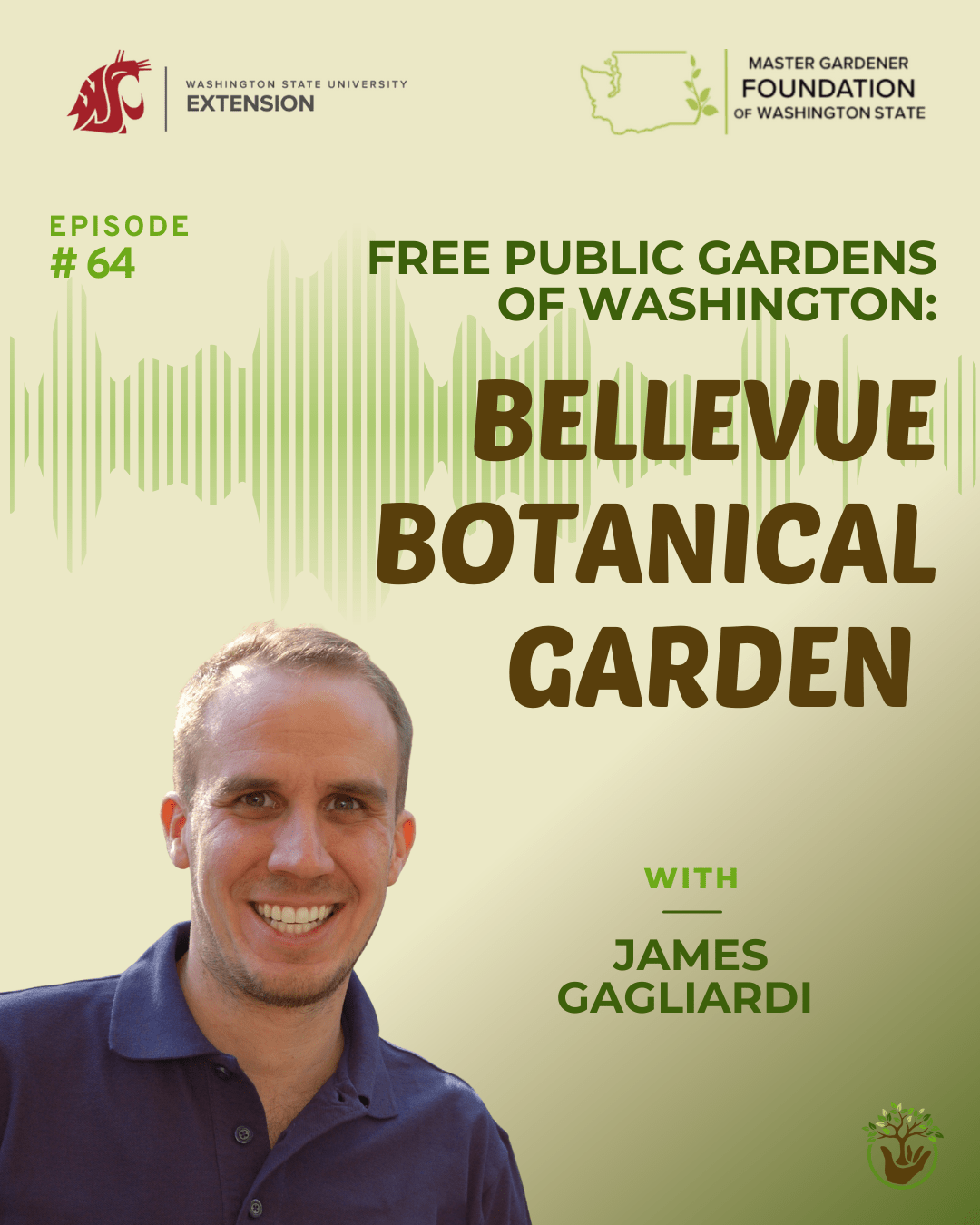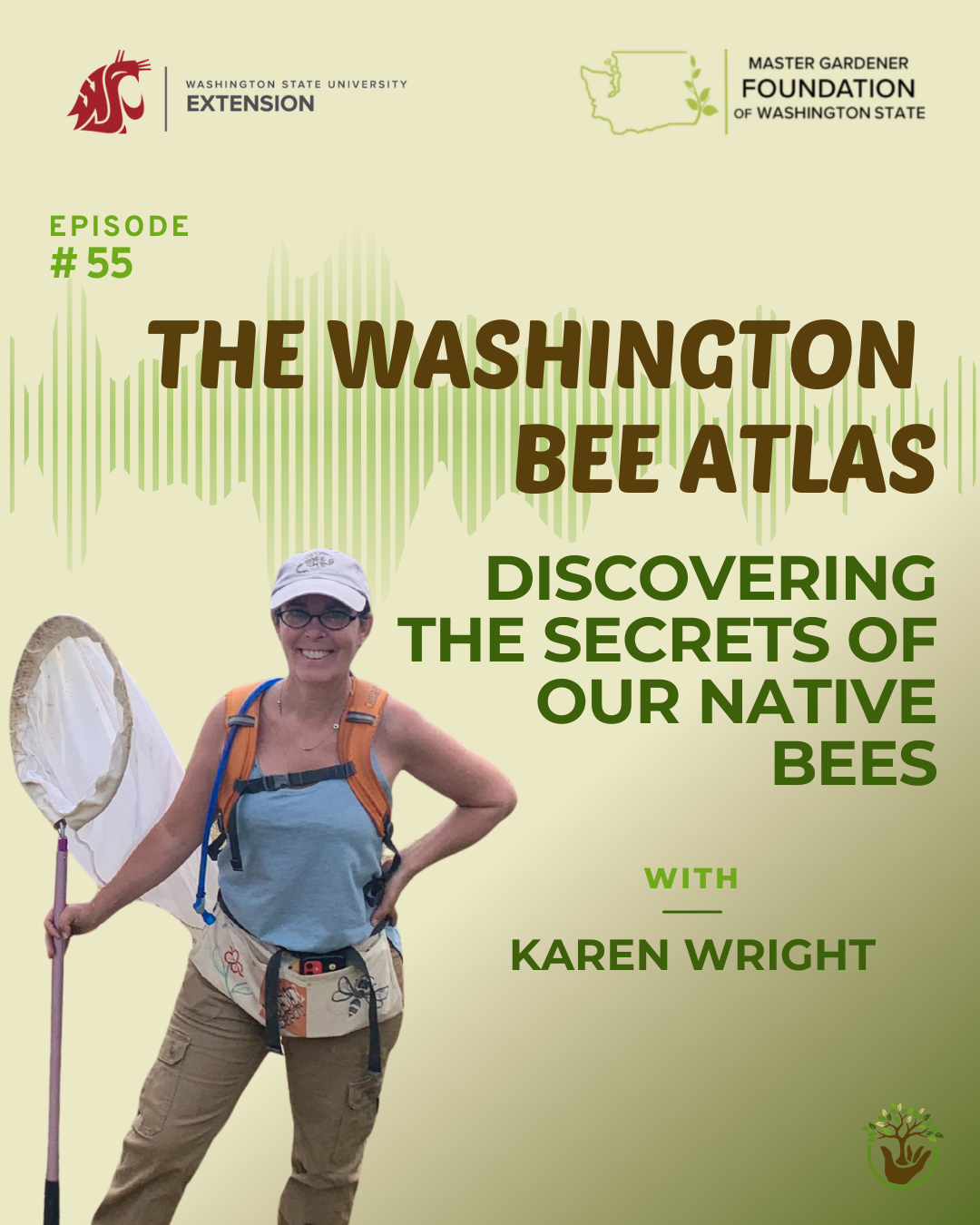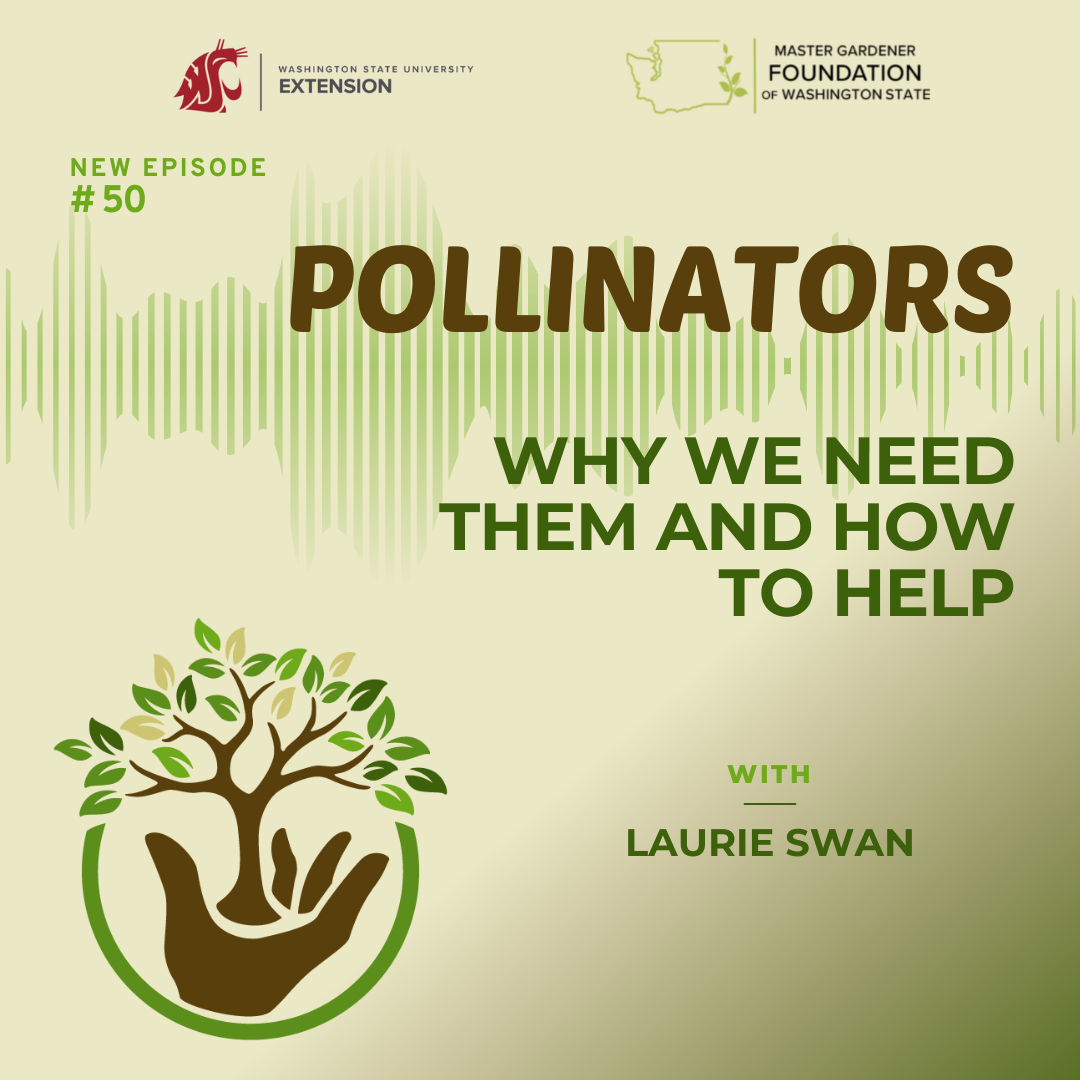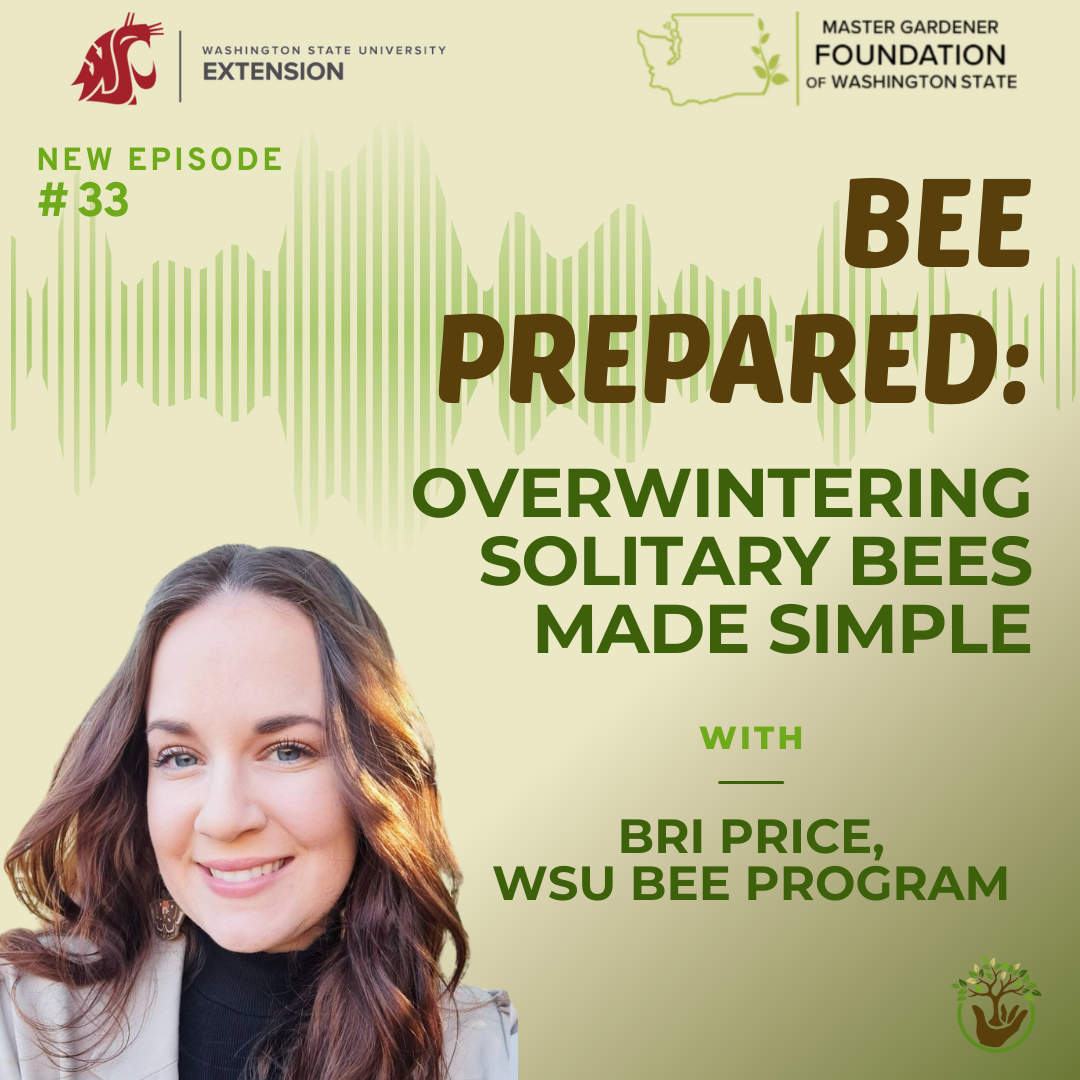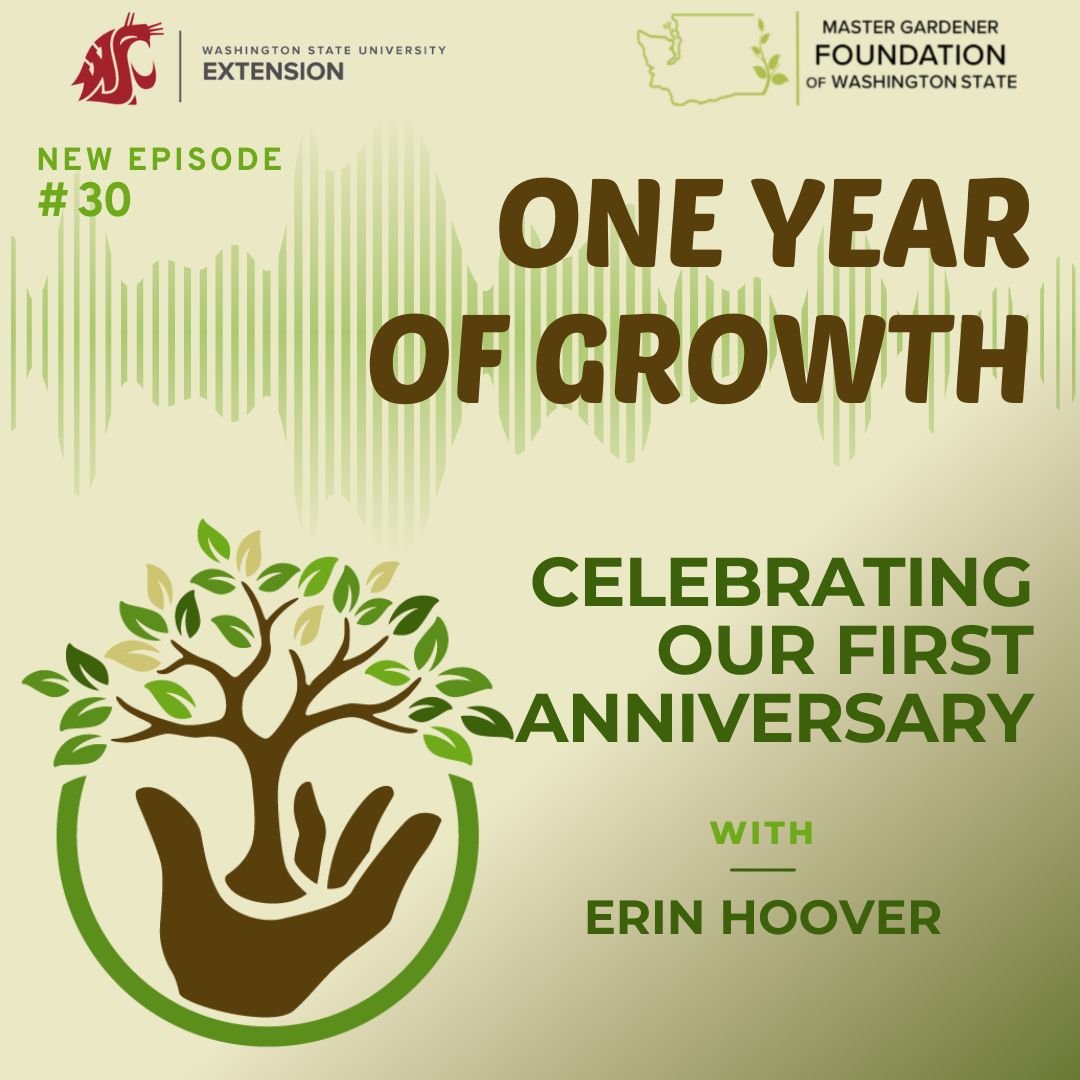
Pollinators: Cultivating Resilient and Thriving Gardens
This is a list of Evergreen Thumb episodes related to Pollinators. WSU Extension Master Gardener volunteers teach ways to help native bees and other pollinators thrive in home and community landscapes.
Pollination is an essential ecological survival function. Almost 80% of food-producing plants require pollination by animals like bees. One of every 4 bites of food we eat requires a pollinator. Declines in insect pollinators worldwide present a challenge for food security. It’s not just food that we need pollinators for. Pollination is also required for the reproduction of flowering plants that help prevent erosion, filter water, sequester carbon, and add oxygen to the atmosphere. 90% of wild plants are pollinated by bees and according to the Center for Biological Diversity, more than half of the native bee species are declining, nearly 1 in 4 is imperiled and 40% of insect pollinators are highly threatened.
James Gagliardi shares Bellevue Botanical Garden’s history, community involvement, and its role as a vital green space in an urban environment.
In this episode of The Evergreen Thumb, Dave Benscoter joins host Erin Hoover to discuss the Lost Apple Project, a 20+ year project to rediscover, identify, and preserve forgotten apple varieties in the PNW using historical research and DNA analysis.
Want to help save the bees? Washington Bee Atlas Pollinator Taxonomist Karen Wright joins host Erin Hoover to talk about the Washington Bee Atlas and how to get involved to help gather data about our native bee populations.
In part 5 of our Program Priority Series, we cover pollinators. Certified Pollinator Steward Laurie Swan joins host Erin Hoover to discuss why we need to take care of our pollinators and provides listeners with strategies for helping native bees and other pollinators thrive in home and community landscapes.
WSU Bee Program Extension Coordinator Bri Price joins us to explain how listeners can best support solitary bees before and during the winter season.
It’s been a whole year! Host Erin Hoover recaps fan favorite episodes and questions she has been asked in this special anniversary episode.
Find pesticide labels to be confusing? Rachel Bomberger joins us to talk pesticide labels and how to interpret them.
Pollination Program Educator Thyra McKelvie joins us to explain how solitary bees fit in our ecosystem and the importance of protecting our pollinators.
Ever wonder what happens to pollinators in winter? Want to make sure they come back? Entomologist David James discusses overwintering garden pollinators.
